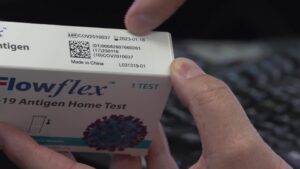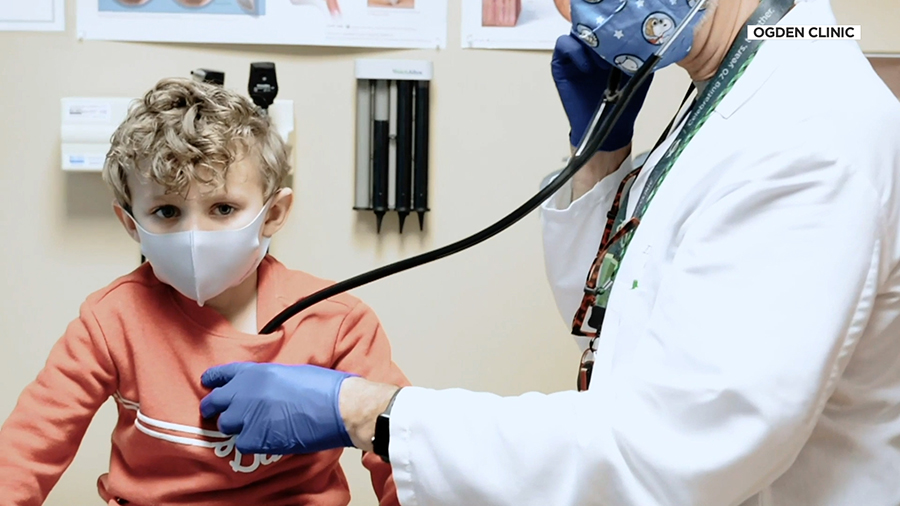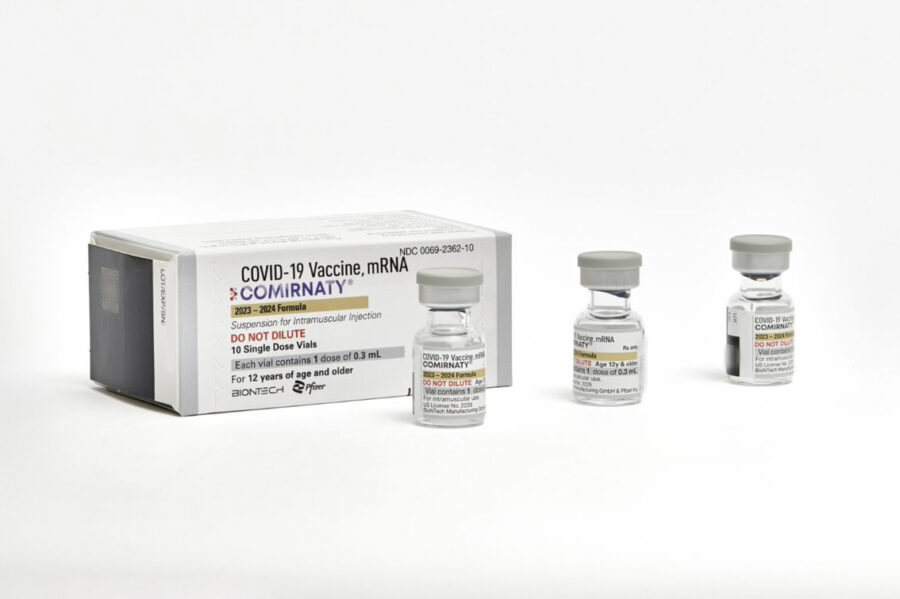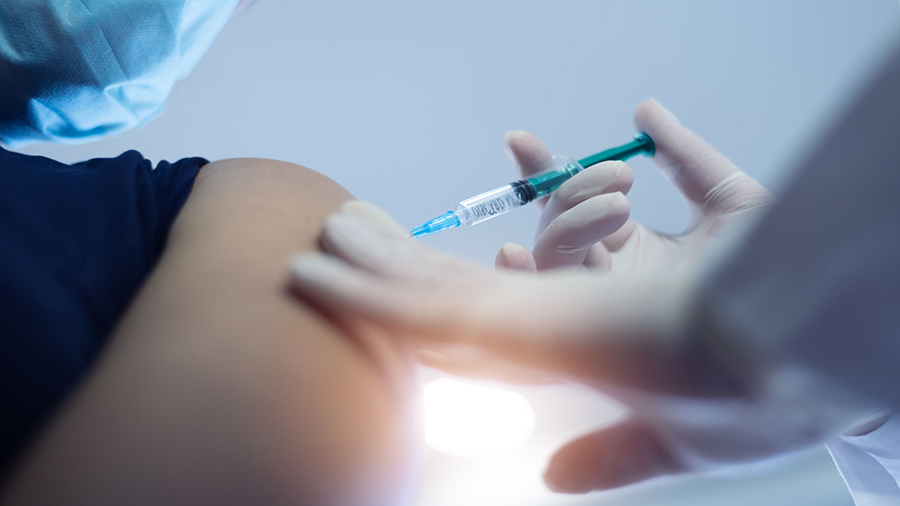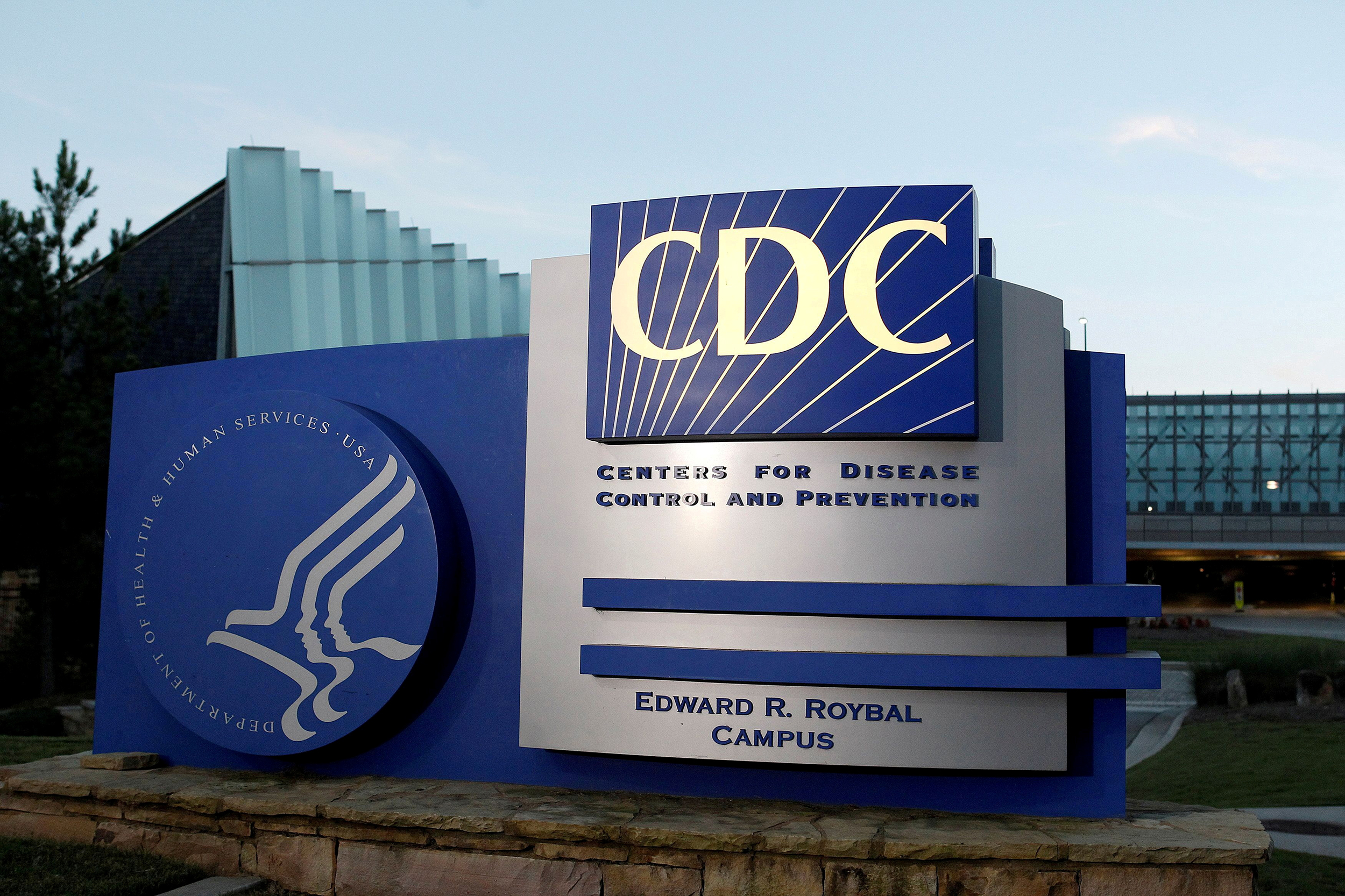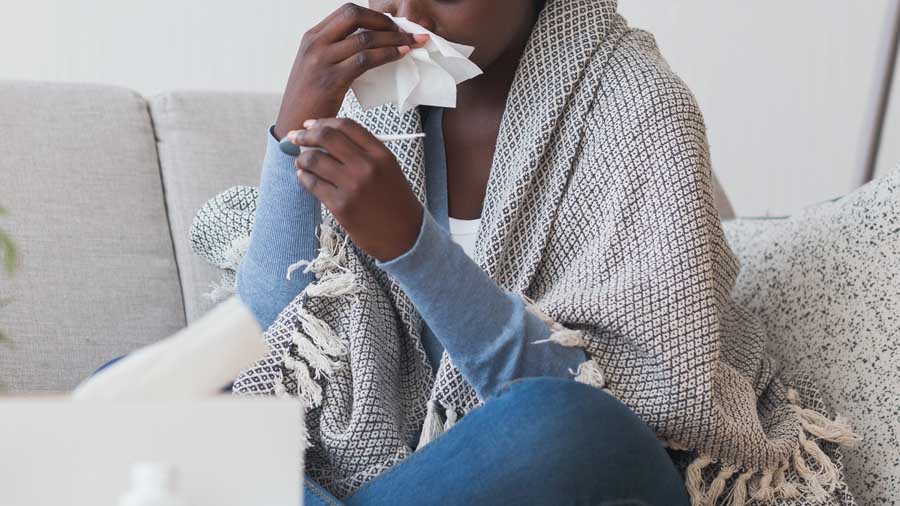Have an expired COVID-19 test? It might still be good to use, as cases rise in Utah
Sep 11, 2023, 7:47 PM | Updated: 7:48 pm
SALT LAKE CITY — Doctor’s offices and health departments are waiting on the approval of a new COVID-19 vaccine booster, which is on the cusp of distribution while new cases begin to rise in Utah.
The Salt Lake County Health Department recommends that people take another important step before administering an at-home test if they’re feeling sick in addition to getting a COVID booster.
Which arm gets the COVID-19 booster may make a difference, study shows
On Monday, Salt Lake County Health Department, Nicholas Rupp, communications director, pulled up graphs that showed COVID-19 cases in the county. He’s been watching the numbers rise lately.
As he sees the spike in numbers on the graph, Rupp hopes to focus on prevention.
“We want to avoid any of the major respiratory illnesses. We don’t want to have influenza, or COVID, or RSV,” he said. “And there are vaccines available for all three of those illnesses.”
Over at the University of Utah Health, doctors are seeing patients coming through the door in hopes of focusing on treatment.
“Some of them, it’s relatively mild, just sniffles and sneezes,” said Dr. Russell Vinik, U of U Health Chief Medical Operations Officer. “And some of them have bad pneumonia. And those are the ones that typically get hospitalized.”
As they take in more COVID-19 cases, ranging in the hundreds instead of the usual dozens, U of U Health is waiting to give out the new vaccine booster, which Dr. Vinik said will be effective against the most recent COVID variants.
The FDA approved the booster Monday, and he said the CDC Advisory Committee will meet Tuesday to discuss who should get the vaccine. The CDC is expected to issue that recommendation Tuesday.
US approves updated COVID vaccines to rev up protection this fall
Much like the annual flu shot, the booster won’t be 100% effective. But Dr. Vinik still recommends people get the shot.
“It’s kind of like wearing a seatbelt in your car. They’re not 100% effective, they’re not going to prevent you necessarily from getting in an accident,” he said. “But when something bad happens, they prevent the worst of consequences.”
The Salt Lake County Health Department is also waiting for the approval. They could be receiving the first doses to distribute by the last week of September.
“You should be fine to get the vaccine as soon as it’s available, both for flu and COVID,” Rupp said. “So when it’s here, the end of September or very early October, go ahead and get it. There’s really no reason to wait.”
For anyone getting sick now, Rupp urged people to check the expiration date on their at-home COVID test. Rupp explained that it could still be fine to take with accuracy if the expiration has long passed, like a test sitting on his desk with a January 2023 expiration.
“Many of the tests do have the expiration date extended by the government. They’ve been approved for additional months or sometimes up to a year at a time,” he said.
Rupp said people can go to the FDA website and search for a test manufacturer and lot number. A document will show the new expiration date.
According to that search, the test on his desk doesn’t expire until January 2024.
“If it has [been extended], you’re good to use it. You don’t need to waste that test,” he said. “If it hasn’t been extended, then you need to dispose of that test.”
The Utah Department of Health echoed Rupp’s information Monday, urging people to stay updated on vaccines, including COVID, the flu, and for those eligible, RSV.
COVID-19 Epidemiologist Josh Benton said that if anyone is feeling sick, even if they test negative for COVID-19, to stay away from other people and stay home.
And while each individual can make the choice about mask-wearing, he said it’s a good form of protection for at-risk people like the elderly or immunocompromised or for anyone in close contact with those at-risk.
Rupp said he’s already started masking up at crowded, indoor events as a precaution.
“COVID is very much like one of our fall respiratory illnesses like influenza, like RSV. It’s something that many people will weather… but not everyone will,” he said. “So, we need to do our best to prevent spread.”


